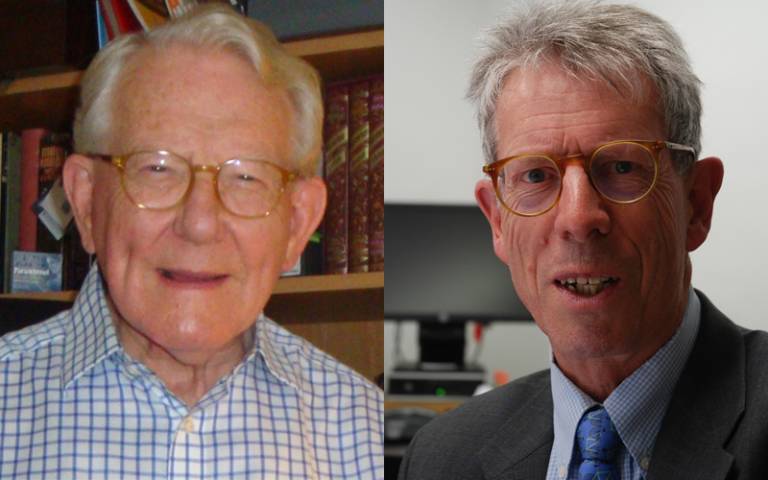Analysis: What’s the secret of modern monarchy’s survival?
28 September 2020
Professor Robert Hazell and Dr Bob Morris (UCL Constitution Unit) write an op-ed on the findings from their new book, The Role of Monarchy in Modern Democracy: European Monarchies Compared, which discusses the royal family in modern society.

The monarchy is dismissed by many on the left as a feudal relic, but some of the most advanced democracies in the world are also monarchies. It remains a strong tradition around the western rim of Europe and in a new book we have reflected on what accounts for their success. Our study looks at the Scandinavian monarchies of Denmark, Norway and Sweden; Belgium, the Netherlands and Luxembourg; Spain and the UK.
Most of the other European monarchies disappeared at the end of the First or Second World Wars. The remaining monarchies have survived by allowing their political power to shrink to zero and by being keenly responsive to public opinion. What are the secrets of their survival?
One: remain scrupulously neutral. Monarchs who are too interventionist will encounter resistance. This is what happened in Denmark in 1920, when King Christian X was forced to back down. A more recent example was when Grand Duke Henri of Luxembourg was stripped of his legislative role in 2008 after he refused to sign a euthanasia bill into law. Constitutional monarchs must accept that they have no discretion when it comes to matters of state; little choice but to approve every action of the government in the hundreds of documents they are required to sign every week.
Two: keep the team small. The greater the size of the royal family, the greater the risk that one of its members may get into trouble, with criticism about excessive cost and too many hangers-on. In Norway the royal family consists of only four people: the King and Queen, Crown Prince and Princess. But the size of the royal family will vary depending on the size of the country concerned. The UK, with a population more than ten times that of Norway, needs a larger royal family to fulfil all the demands for royal patronage and visits.
Prince Charles has been reported as wishing to slim down the royal family; but too small a team could reduce the monarchy’s reach and public profile. In Spain, one reason for the monarchy’s low popularity is its limited visibility: the royal family consists only of the King and Queen – smaller than Norway’s monarchy and serving a country whose population is ten times the size.
Three: try to avoid scandals. The most serious have been in Spain, where in 2011 King Juan Carlos helped the Spanish government to win a €7 billion high speed rail contract in Saudi Arabia. Prosecutors in Switzerland and Spain are now investigating the accusation that he received $100m from the Saudis. Governments like to involve royals in trade deals, but it can cause difficulties, from Prince Bernhard of the Netherlands (the Lockheed scandal), to Prince Andrew’s role as UK trade envoy.
Four: although hereditary, the monarchy is accountable, just like any other public institution. Monarchs who step out of line risk losing their thrones. Grand Duchess Marie-Adélaide of Luxembourg and King Leopold III of Belgium had to abdicate because of their conduct during the First and Second World Wars. The British King Edward VIII was forced to abdicate when he insisted on marrying a woman who had been twice divorced. When King Juan Carlos abdicated in 2014, opinion polls showed that two thirds of Spaniards felt he should leave the throne.
Modern monarchies are continuously held to account in a range of ways. They are subject to public funding, which can go down as well as up. They are scrutinised by the media. Alongside the glossy pictures, journalists scrutinise their expenditure, their hunting trips, their choice of friends. The media also commission regular opinion polls. Support remains high in all countries, with surveys regularly showing that between 60 and 80 per cent of the people wish to retain the monarchy.
This final lesson, about the accountability of the monarchy, is the most important. Individual monarchs can be forced to abdicate; and support for the institution as a whole can be tested in a referendum. It was through referendums that the monarchy came to an end in Italy and Greece, and was restored in Spain; and that the future of the monarchy was endorsed in Belgium, Denmark, Luxembourg and Norway.
The monarchy may seem the very antithesis of a democratic or accountable institution; but ultimately continuation of the monarchy depends on the continuing support of the people.
This was first published in the Times on 28 September.
Links
- Professor Hazell’s academic profile
- Dr Bob Morris’s academic profile
- UCL Constitution Unit
- UCL Department of Political Science
- UCL Faculty of Social & Historical Sciences
 Close
Close

